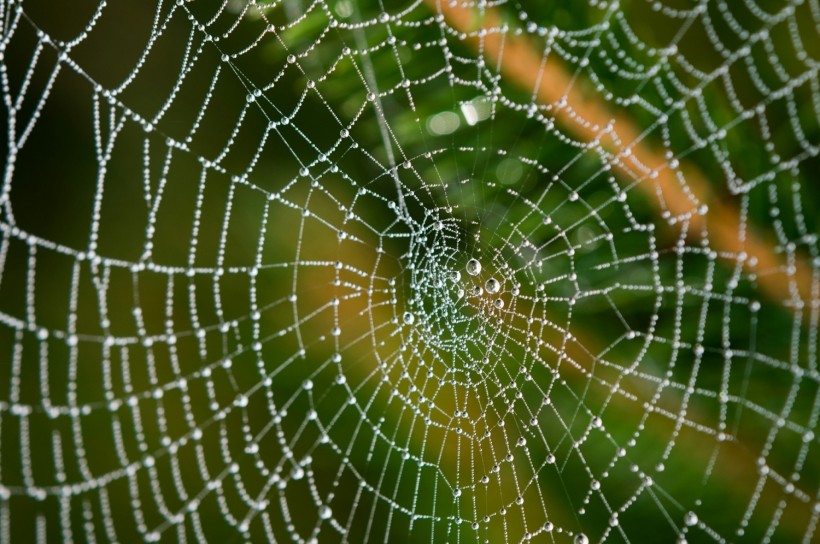[ad_1]
Spider silk is protein fiber that comes from spiders. The substance gained popularity not only because it is the foundation of a durable spider web, but it is also stronger than steel. Scientists before have also found that silk fiber is also stronger than Kevlar, a heat-resistant synthetic fiber commonly used for body armor, bulletproof vests, aerospace engineering, and man-made crafts.
Described as a unique fibrous biomaterial, spider silk has had a wide range of applications in modern times since its usage by humans for thousands of years. Despite our knowledge of the spider-borne substance, research continues to unravel its mystery. Based on a study by researchers from Binghamton University in New York, spider silk also inspired the creation of powerful microphones.
Microphones are considered “transducers” since it converts sound waves into electrical signals that can be processed by a hearing aid’s audio device. Through this process, a device is allowed to capture sound and spread it to multiple devices, including computers. According to research, spider silk can help the world’s current microphones to work better in hearing aids, cell phones, and other devices.
Spider Silk Microphones
![Spider Silk Found as Potential Source for Creating World's Most Powerful Microphones [Research] Spider Silk Found as Potential Source for Creating World's Most Powerful Microphones [Research]](https://1471793142.rsc.cdn77.org/data/images/full/70583/spider-silk-found-as-potential-source-for-creating-worlds-most-powerful-microphones-research.jpg?w=820)
Dubbed “spider silk microphones,” the Binghamton University stated that spider webs may be the basis for the development of better microphones. According to Ron Miles, a professor at Binghamton University, and graduate student Jian Zhou, spider silk could be a potential source for creating an improved microphone for hearing aids compared to traditional systems.
Findings about the uniqueness of spider silk were published in the study titled “Sensing fluctuating airflow with spider silk” in the journal PNAS in October 2017. The research paper’s basis is the capability of the spider web, made from the said the arachnid’s protein fiber, to help spiders hear even the weakest sound. This is the case when their prey such as small insects make contact with the web.
The study’s authors found that nano-sized spider silk can control airflow in a large area greater than previously thought. This unique characteristic of the fiber provides the aerodynamic property that makes it sensitive to incoming sound. Integrating this biomaterial to artificial devices, the researchers believe microphones can be better with the help of spider silk.
Also Read: Spider Silk Inspires New, Ultra-Tough Fiber
Is Spider Silk Stronger Than Steel?
The potential for powerful spider web microphones is highly possible since most spider silk is stronger than steel, as mentioned earlier. According to a 2018 study published in the journal ACS Macro Letters, researchers found the reason why spider silk is five times stronger than steel. Using the silk of a recluse spider (Loxosceles) as a sample, they found such strength comes from nanofibrils.
Compared to a tiny cable, spider silk has been found by scientists to be composed of entirely parallel nanostrands. This is reportedly a significant discovery since previous scientific literature showed no evidence about the entire makeup of a silk fiber in relation to nanostrands.
Related Article: Artificial Spider Silk Made by Mimicking Natural Spinning Process
© 2024 NatureWorldNews.com All rights reserved. Do not reproduce without permission.
[ad_2]

